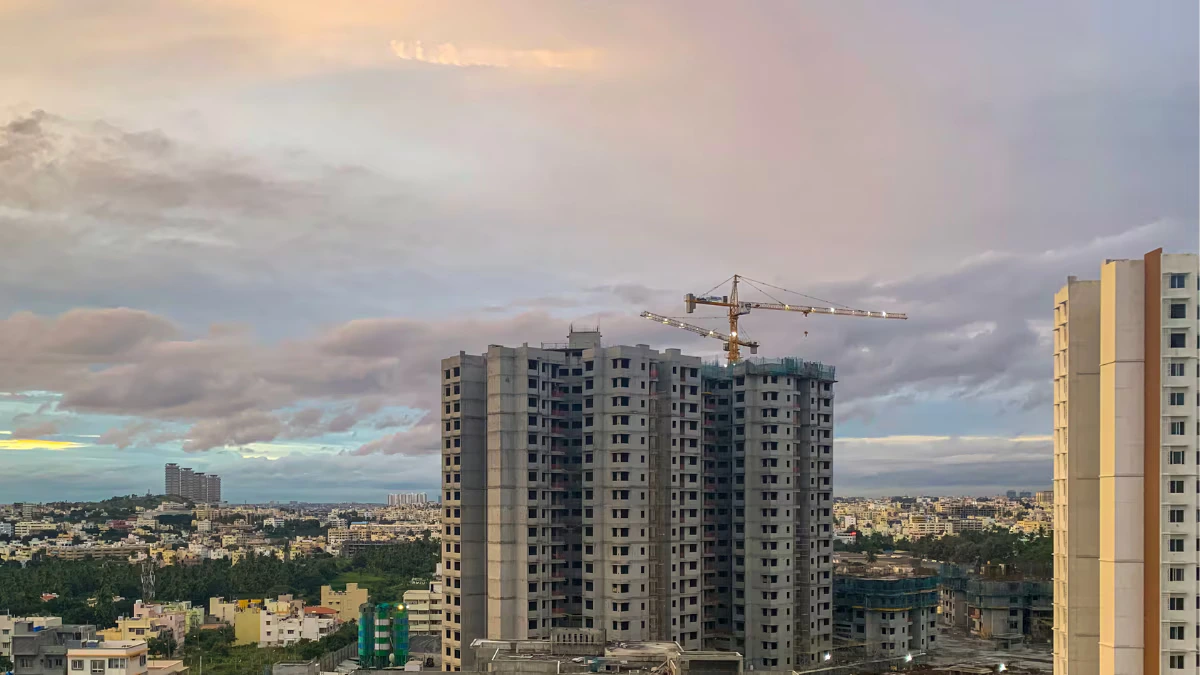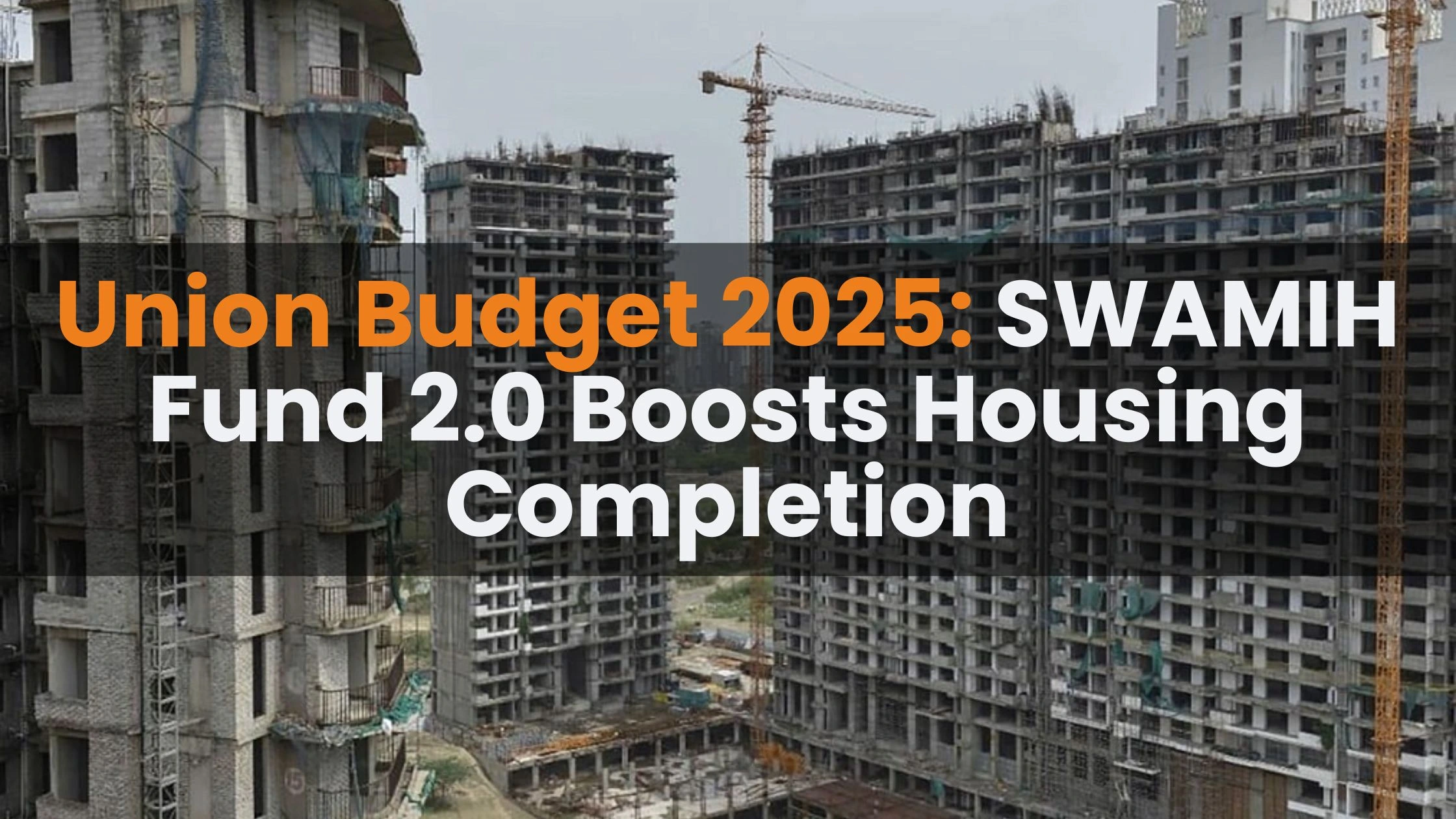Table of Content
▲
India's housing market is worth more than $300 billion. Entering a declining growth phase in 2024 after three years of extraordinary growth, factors such as rising real estate prices and higher mortgage interest rates have weighed on homebuyers' purchasing power. This gives the real estate sector hope for a recovery with the upcoming Union Budget.
Why 2024 Was a Mixed Year for Housing
After a strong recovery post-Covid, where housing sales grew by impressive percentages each year, 2024 saw a 4% decline. This drop was partly due to:
- High Base Effect: 2023 witnessed record-high sales and new launches, making it challenging to maintain that momentum.
- Price Increases: Home prices rose by an average of 21% year-over-year, making properties less affordable.
- Fewer Affordable Options: Affordable housing demand remained weak, while luxury housing sales remained robust.
Anuj Puri, Chairman of Anaroc, called 2024 a year of mixed results. Luxury homes attract buyers With DLF's premium Rs 26,000-crore project 'The Dahlias' in Gurugram selling quickly. This trend highlights the growing demand among wealthy buyers for high-end real estate.
Also Read: E-Khata:Transforming Property Management for Homebuyers in Karnataka
Luxury Real Estate Flourishes Despite Slowdown
The ultra-luxurious segment has become a star performer, with villas, penthouses and spacious flats in high demand. which reflects changes in demand Buyers are now looking for homes with larger spaces and better amenities. Projects on this blog usually sell within days. It's made it a bright spot in a slowing housing market.
Challenges for Affordable Housing
While luxury homes thrived, affordable and mid-income housing segments struggled. High borrowing costs and limited tax benefits under current laws dampened demand. Developers are urging the government to:
- Increase Tax Deductions: Expand interest deduction limits on home loans to make housing more affordable.
- Revise Affordable Housing Policies: Redefine what qualifies as affordable housing to reflect rising costs.
Office Spaces and Warehousing: A Bright Spot
The commercial real estate sector, including office spaces and warehouses, had a stellar year in 2024. Leasing activity reached record highs as foreign companies set up operations in India, drawn by skilled talent and lower costs.
- Managed Office Spaces: Demand for coworking offices surged, leading operators like Awfis to expand aggressively and even launch IPOs.
- Logistics and Warehousing: The growth of e-commerce and manufacturing boosted demand for industrial spaces, with premium facilities seeing high occupancy.
Major Investments in Real Estate
Indian real estate will attract about $9 billion in institutional investment in 2024, up 51% from the previous year. Domestic and international investors are placing big bets on commercial and industrial real estate. This shows confidence in the long-term potential of this sector.
Efforts to Resolve Stalled Projects
One of the most critical challenges facing the sector is stalled housing projects, which have left thousands of homebuyers in limbo. In 2024:
- Jaypee Infratech: Approved for acquisition by Suraksha Group, promising completion of 20,000 units.
- Supertech Ltd: State-owned NBCC took over 16 incomplete projects.
While progress was made, issues with other developers, like Unitech, remain unresolved, affecting buyer confidence.
What’s Next for Indian Real Estate?
Experts predict that the housing market will stabilize in 2025, with minimal price increases and steady demand. However, much depends on policy support from the government. The Union Budget is expected to bring:
- Lower Interest Rates: A cut in home loan rates to make borrowing cheaper.
- Tax Benefits: New incentives for homebuyers and developers to stimulate demand.
- Affordable Housing Push: Measures to make housing more accessible to the masses.
Boman Irani, President of CREDAI, emphasized the need to remove policy roadblocks and redefine affordable housing standards. With appropriate reforms, the real estate sector, which is expected to grow to $5.8 trillion by 2047, can unlock its full potential.
The Indian real estate market remains resilient in 2024 despite challenges. The luxury goods group is thriving. Thriving office space and investment flows in This is despite the failure of affordable housing. But the sector remains optimistic about government intervention in 2025 to drive growth.
The upcoming Union Budget is a landmark moment for the industry. This is key to restoring demand and addressing affordability concerns. with the correct policy The housing market can once again become the cornerstone of India's economic growth.
Also Read: Haryana Increases External Development Charges by 20% in 2025









_1771582392.webp)
_1771577585.webp)
Ans 1. The decline in 2024 was due to factors like rising housing prices, higher borrowing costs, and a high base effect from record-breaking sales in 2023. This, combined with a fall in the supply of new homes, led to a decrease in demand.
Ans 2. Luxury real estate continued to thrive in 2024, with high-end properties, including villas and penthouses, seeing strong demand. Many luxury projects sold out within days of launching, reflecting a growing appetite for larger, more luxurious homes.
Ans 3. Affordable housing sales were impacted by elevated home loan interest rates and limited tax benefits under the current system. Additionally, rising property prices and the availability of fewer affordable housing units have hindered demand.
Ans 4. The Union Budget can significantly impact the housing market by introducing measures like lowering interest rates, expanding tax benefits for homebuyers, and providing incentives for developers, especially in the affordable housing segment.
Ans 5. Key challenges include high property prices, elevated borrowing costs, slow sales in the affordable housing sector, and the ongoing issues with stalled housing projects, which affect consumer trust.
Ans 6. The office space market saw strong growth, with record leasing activity driven by foreign companies setting up operations in India. Demand for coworking spaces also surged, with operators expanding their portfolios.
Ans 7. Experts predict stabilization in 2025, with a modest growth rate in housing prices. The market's future largely depends on government interventions in the form of tax incentives, lower interest rates, and clearer policies for affordable housing.
Ans 8. In 2024, efforts to resolve stalled projects gained momentum, with developers like Suraksha Group acquiring Jaypee Infratech and NBCC completing projects for Supertech Ltd. Successful resolution of these projects is crucial to regaining buyer trust.
Ans 9. There are hopes that the Reserve Bank of India (RBI) may cut interest rates in 2025, making home loans more affordable and boosting housing demand, especially in the mid-income and affordable housing segments.
Ans 10. Institutional investment in Indian real estate rose by 51% in 2024, reaching nearly USD 9 billion. This growth highlights strong investor confidence in the sector, driven by sustained demand across residential, office, and industrial properties.